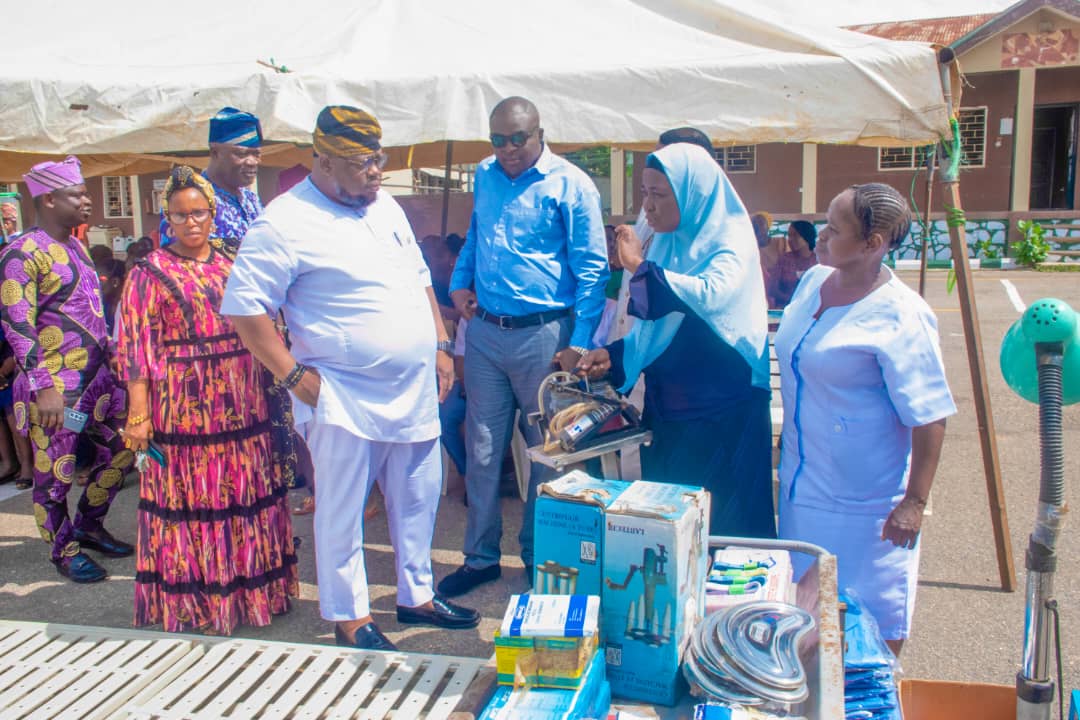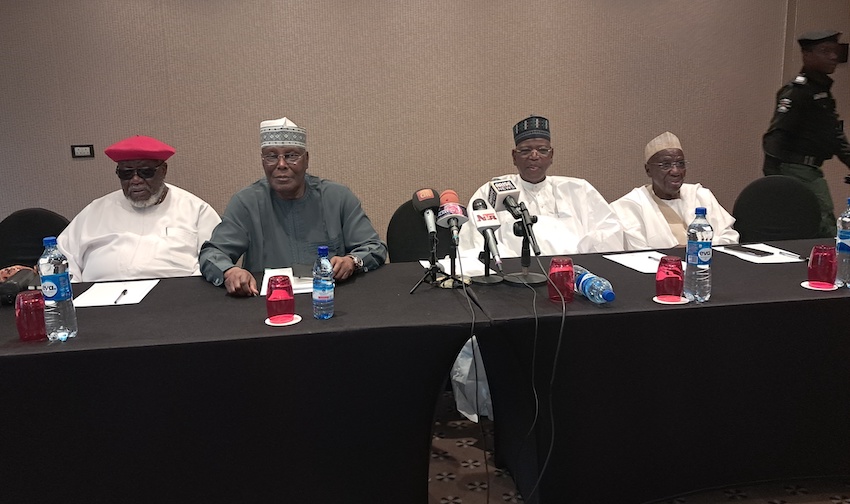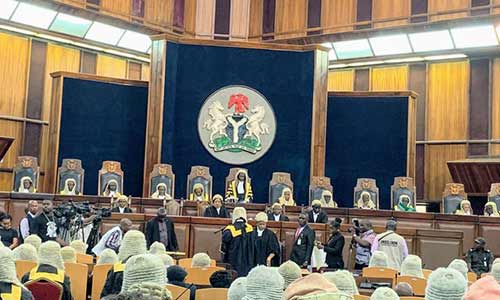Again, SMATO sponsors bill for establishment of Nigerian Institute of Cashew Research in Eesade Ogbomoso
A federal lawmaker representing Ogooluwa/Surulere federal constituency, Hon. Sunday Makanjuola Smato, has sponsored a bill for the establishment of Nigerian Institute of Cashew Research in Eesade, Ogbomoso.
The bill passed through its second reading on Tuesday, during plenary that was presided over by the Speaker, Tajudeen Abass.
Sole aim and objectives of the bill are to provide basic and applied research into and facilitate access to resources, training and other technical services relating to the cultivation, processing, utilisation and economy of products of cashew in Nigeria.
Below is the Bill:
A BILL FOR AN ACT TO AMEND NIGERIAN RESEARCH INSTITUTES ACT LAWS OF THE FEDERATION OF NIGERIA 2004, TO ESTABLISH NIGERIAN INSTITUTE OF CASHEW RESEARCH, EESADE, OGBOMOSO.
Hon. Sunday Ojo Makanjuola
Mr. Speaker and Honourable Colleagues, permit me to lead the debate on the general principles of A Bill for An Act to Amend Nigerian Research Institutes Act Laws of the Federation of Nigeria 2004, to Establish Nigerian Institute of Cashew Research, Eesade, Ogbomoso, Oyo State. You will recall this Bill was read for the first time in this hallowed Chamber.
My respected Colleagues, this is a necessary Bill that seeks to amend Sections 1, 3 and 8, and also Schedule to Section 2 subsection (1) of the Nigerian Research Institutes Act Laws of the Federation of Nigeria 2004, to establish Nigerian Institute of Cashew Research, Eesade, Ogbomoso, to provide basic and applied research into and facilitate access to resources, training and other technical services relating to the cultivation, processing, utilisation and economy of products of cashew in Nigeria.
My respected Colleagues, for the establishment of the institute and attainment of its objectives under the Substantive Provisions:
- The Section 1 of the Principal Act is amended in subsection (1) by deleting the word “four” in the paragraph; by inserting new paragraph “(b)”-
“(b) the Nigerian Institute of Cashew Research, Eesade, Ogbomoso, Oyo State”; by inserting after the existing expression “the Cocoa Institute”, new expression “the Cashew Institute”; by renumbering the subsection appropriately; and in subsection (2) by deleting the word “cashew” in paragraph (a); by inserting a new paragraph “(b)”-
“(b) the production and products of cashew and of such other as the Minister may, from time to time, determine, in the case of the Cashew Institute;”; and by renumbering the subsection appropriately.
- The Section 3(3) of the Principal Act is amended in paragraph (d), by inserting after the existing expression “the Cocoa Institute”, expression “the Cashew Institute”
- The Section 8 of the Principal Act is amended by inserting new subsection “(4)”-
“(4)”-. There shall, by virtue of this Bill and without further assurance, be vested in the Nigerian Institute of Cashew Research at the commencement of this Bill all rights, interests, obligations and liabilities which immediately before the commencement were vested in the Cashew Section of the Cocoa Research Institute of Nigeria.”
My respected Colleagues may recall that the current administration under President Bola Ahmed Tinubu has promised a new era in the country’s agricultural sector, and that it is no longer business as usual as this administration has taken firm position to boost food security as well as diversify the economy from over-reliance on petroleum. To carry out this, the Federal Government unveiled an 8-point agenda which include food security; poverty eradication; growth, job creation and access to capital among others. We now have programmes which includes the National Agriculture Growth Scheme, to support millions of farmers through training on Good Agricultural Practices (GAP), certified inputs such as improved seeds and so on, at highly subsidised prices to enhance their production, increase productivity and higher incomes.
Apart from their higher Kernel Turn-Out Ratio (KOR) and Nut Count, for the Nigerian market, cashews grown on Ogbomosho belt are considered premium quality and command extra premium price in the international market. The reason largely being that they do not have peeling problems during harvest and processing and also because of the size of the kernels inside the nut with evidence of no fungal or insect damage. All these because of the physical soil properties of Ogbomoso belt being the most favourable in the Guinea Savanna region of Nigeria and by extension the most suitable for best cashew quality in West Africa; thereby making the belt the largest cashew dominant area in the Guinea Savanna region of southwestern Nigeria and the title of being the paradise of best cashew quality in West Africa. Outside Ogbomoso in Oyo, cashew plantations and businesses are also prominently found in Kogi, Abia, Benue, Enugu States, with other states in this Bill having cashew presence.
Respected Colleagues, according to several researches, cashew, is not just a source of food, income, industrial raw materials but also source of a foreign exchange for many countries of Africa, Asia and Latin America. In Nigeria, current cashew trading and exports is worth over 40 billion naira and over two million people depend on the industry. Hence the need for a separate institute for the core of that industry rather than its present mere section under the Cocoa Institute.
In conclusion, Mr. Speaker and Honourable Colleagues, in view of the efforts currently being made by the Federal Government of Nigeria not to only diversify the economy but also its food security, poverty eradication, growth, job creation and access to capital among others through the 8-point Agenda, the need to establish an institute of cashew research cannot be over emphasised, hence the much needed move to establish the Nigerian Institute of Cashew Research, Eesade, Ogbomoso, in line with the Federal Government policy on agriculture. I therefore urge my respected Colleagues to support that the Bill be read for the second time and referred to the relevant committee for further legislative action.























